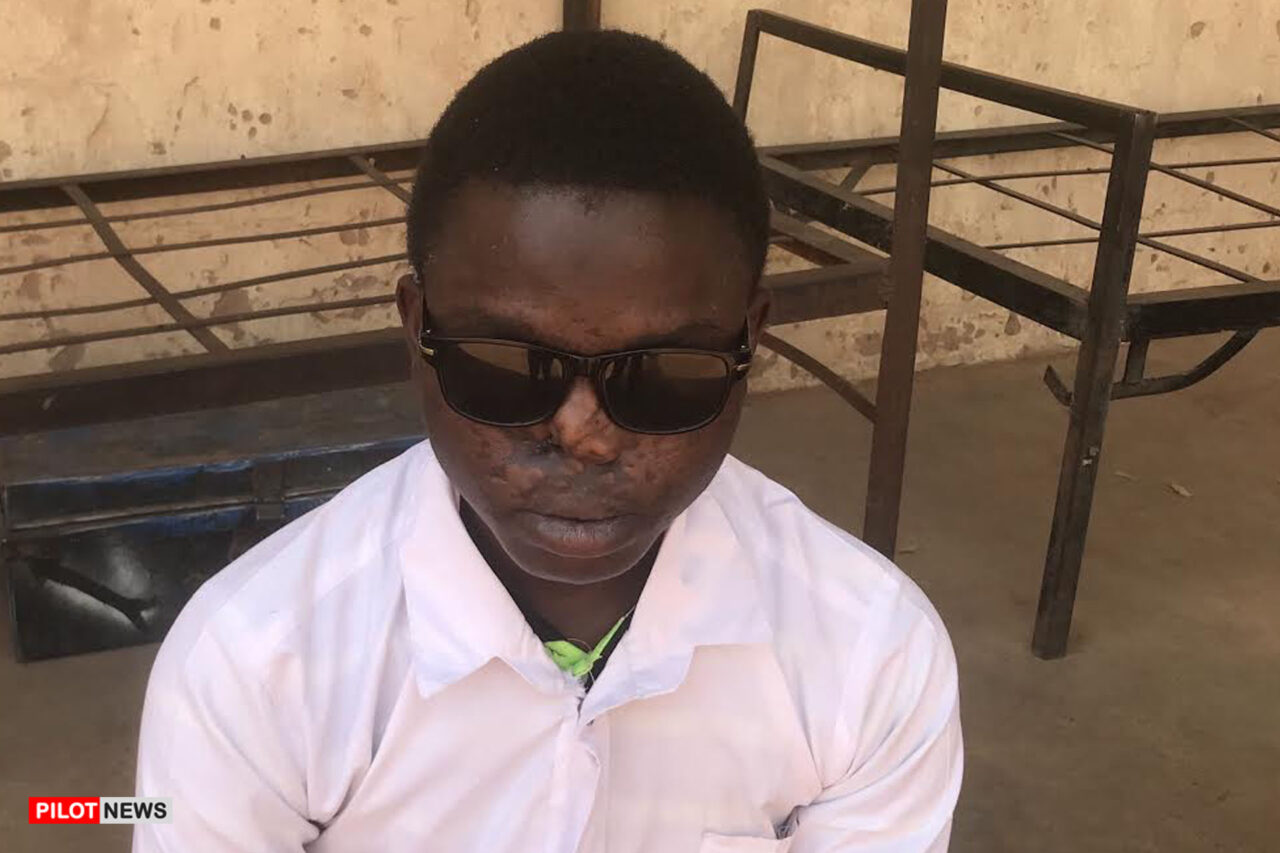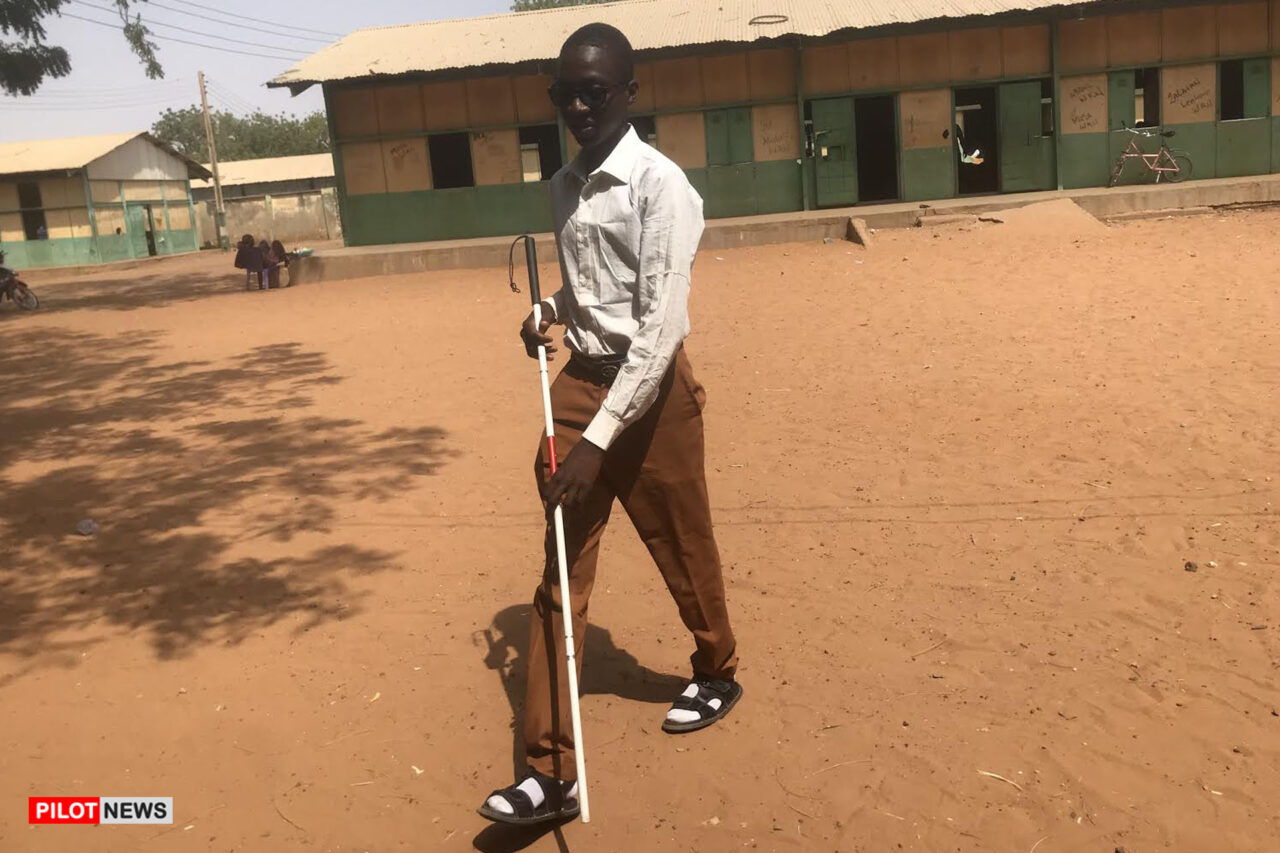The sun was scorching and Hauwa, a blind girl, needed shade to rest. After a long walk around her community in Bodinga Local Government, Sokoto State, the 16-year-old, accompanied by a younger girl, decided to settle at the community filling station to catch her breath. Hauwa was standing in one corner of the station when an irritated attendant yelled at her to leave the premises.
The defenseless girl who spends her time on the street begging for alms was described with uncouth words by the attendant and ushered out of the station out of concern that she might upset some customers.
Children with disabilities are the most marginalized group in Nigeria. They are often subjected to negative attitudes and human rights abuses because they are vulnerable and can hardly defend themselves.
To many, young people with disabilities are considered not human enough, according to Hudu Isah, a special needs teacher. The discrimination against this group is based on the stereotype that they are incapable of contributing positively to the growth of their community.
” There are certain limitations to what children with disabilities can and can’t do. Parents often find these limitations unpleasant; they start to see the child as an unwanted burden,” he said.
‘They called me witch’
Mohammed Alhassan never strolled around seeking alms from anyone. He lived with his parents and siblings and enjoyed the love and support from his family. But that did not shield him from the negativity of members of his community in Ribah area.
“People treated me with scorn. They blamed me for my condition but I knew I did nothing wrong. I was very young then,” Mohammed explained.

Mohammed Alhassan – with black glasses to shield his disabilities
Until he became the victim of a friend’s devious mischief, everyone around treated him with delight. At 8, he was shot in the face by his friend with a hunting rifle abandoned on the farmland. The accident disfigured his round-shaped face and damaged his eyes.
Mohammed told this reporter that he was called a witch many times and has been forced to admit to being a beggar by people who knew quite well that he isn’t.
His mother had also been urged to send him to the street to beg for alms. Despite his mother’s refusal, Mohammed explained that many still treated him as though he was a beggar.
“Like it or not, once you are disabled, people will always see and treat you like a beggar. Some just do it to mock me, others just assume I beg because of my condition,” he said.
Ignorance, fictitious beliefs driving abuse
Tayo Fatinikun, the executive director of Life Helper Initiative, an NGO that advocates for people with disability, attributed the ignorance of people on how to relate to physical impairment to the neglect and discrimination children with disability are subjected to.
He pointed out that many parents do not understand how to care for and accommodate their special needs children, hence the neglect.
This, according to him, combined with the intolerable perception of many people towards people living with a disability is the reason for the ugly treatment.
” Some groups believe that these kids are connected to evil. Some believe that they are reincarnates of a spirit. There are a lot of fictitious beliefs and heresies about children with impairment.
“Parents discriminate against their children and harass them because they don’t know how to handle them. They are not tutored or counseled on how to care for these kids,” he said.
Harassment of impaired children
In Safiwa community, Sokoto, Aisha Ahmed was bullied by peers and haunted by children and adults until she became terrified of going out. The constant humiliation she endured from people made life difficult. She wallowed in sorrow and slept in tears many times.
Aisha Ahmed is a 17-year-old amputee who lost an arm to a terrible fall. The incident caused her months of suffering and anguish which was quickly replaced with the horrible treatments from acquaintances upon treatment.
“I am always afraid of doing the things I want. I never showed interest in anything. My mother always had to comfort me. I get bullied by young boys in my village. Whenever I walk past a group of boys in my village, they start to beat me. This began after I was amputated,” she recounted.
Aisha has been tagged as a one-handed person. She told this reporter that people in her neighborhood prefer to address her by her condition rather than her name.
Harassment for disability can cause trauma and low self-esteem in children, says Ajayi Justinah, an activist for children living with a disability.
The activist stated that the unjust treatments have lifelong impacts, noting that several adults with disabilities live with the trauma caused by their childhood experiences.
Scanty data on children with disability
Nigeria is home to millions of children living with disabilities. The country was identified as one of the top three leading contributors to the global prevalence of children with disability.
Currently, 30 million Nigerians have one form of physical disability or the other as per the World Bank report.
Data from the 2018 Nigeria Demographic and Health Survey estimated that 7% of household members above the age of five experience some level of difficulty in at least one functional domain.
However, there isn’t a clear estimation of the number of people with disabilities and their disabilities in Nigeria.
According to Tayo Fatinikun, Nigeria has not properly aggregated data and captured records on children with disabilities.
He noted this group has not been prioritized in the country’s population count, noting that unless the government is pressured to prioritize them, data on children with disability will remain scanty.
“There has been no concrete effort to document and aggregate data on this group across the country. It has not been a popular area of census. The government should be under pressure to prioritize children with disabilities and collate sufficient data on them,” he said.
‘Laws protecting rights must be effective’
Enoch Ishaya lost his friends because they found his blindness embarrassing and didn’t want to be seen with him.
For him, the hateful words from people stung deeply. Most times, they made him cry. He would walk home quietly after any of such ugly experiences, and lock himself in his room trying to avoid any contact.
“People often try to trivialize my condition as though it isn’t an important aspect of my life. They mock me and speak as though I deserved to be in this condition. I hate when people tell me to forget about my physical impairment,” he recounted.
 Photo: Enoch Ishaya at A.A Rajesh special needs school, Sokoto
Photo: Enoch Ishaya at A.A Rajesh special needs school, Sokoto
Although Nigeria has made a significant commitment to the protection of rights of children living with disabilities by ratifying the United Nations Convention on the Rights of Persons with Disabilities, Convention on the Rights of the Child, Discrimination Against Persons with Disabilities (Prohibition) Act, and other policies protecting the rights of children and young people with disability, many are still vulnerable to a range of human rights abuses.
Justinah Ajayi explained that these policies have not been effectively domesticated and implemented. The child rights activist called for a proactive and intentional effort toward eradicating disability-based discrimination.
“There are laws but they are not effective. To make it effective, we must be intentional about it. There must be proper re-orientation. There must be aggressive and intentional moves against discrimination. This will cut across Religion centers, government parastatals, and the general public as a whole.”
She called for advocacy and public enlightenment on the respect and protection of the rights of young people with disabilities.
Impact of harassment for disability
A study by the Center on the Developing Child showed that harassment for disability can trigger anxiety and toxic stress. Children exposed to neglect, harassment, and discrimination for a prolonged time develop toxic stress.
This stress can damage, and weaken bodily systems and brain architecture, with lifelong repercussions.
“This kind of prolonged activation of the stress response systems can disrupt the development of the brain well into the adult years.
“When a toxic stress response occurs continually or is triggered by multiple sources, it can have a cumulative toll on an individual’s physical and mental health—for a lifetime. The more adverse experiences in childhood, the greater the likelihood of developmental delays and later health problems, including heart disease, diabetes, substance abuse, and depression.”
Adebayo Bukola, an expert in disability and inclusive development said harassment for disability has serious physiological impacts that can push victims to suicide or substance abuse.
According to him, when children are abused, they are also likely to develop psychosocial challenges.
“Many struggle to integrate with society when they grow older. They are often withdrawn and secluded from others. Some can even go into substance drug abuse. This has even led some to suicide.”
He said this because “by the time they grow up, they are forced to deal with the trauma caused by their childhood experiences.”
This work was supported by a Violence Prevention Reporting Fellowship from the International Center for Journalists and the World Health Organization
- Breaking: Ohanaeze President General, George Obiozor, confirmed dead - December 28, 2022
- US to support NDLEA on improved intelligence gathering capacity - December 27, 2022
- Why diversified HIV/AIDS prevention tools matter for women - December 26, 2022
